In the grand journey of life, personal development is the compass that guides us toward becoming the best version of ourselves. It’s the art of continuous self-improvement, a quest to unlock our full potential, and an exploration of the limitless possibilities within us. In this fast-paced world, where change is constant, personal development is the key to adaptability, resilience, and fulfillment. Join me as we embark on a transformative adventure to discover why personal development truly matters.
Table of contents
Defining Personal Development
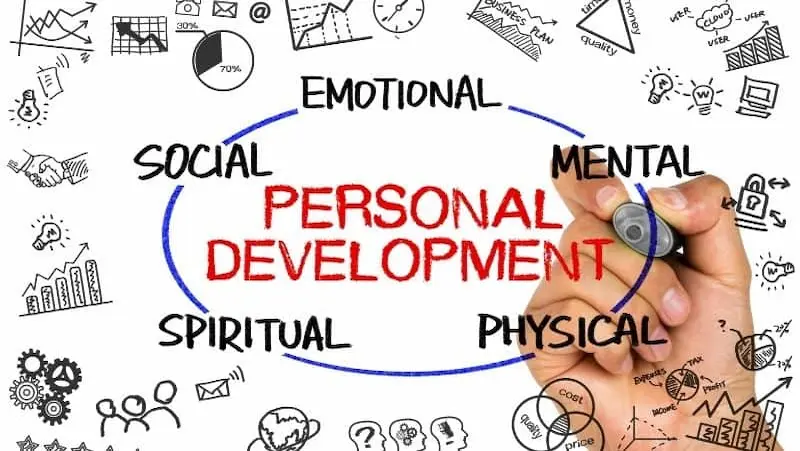
What Is Personal Development?
1. The Concept Explained
Personal development, at its core, is the ongoing journey of self-improvement and growth. It’s about consciously working on becoming a better version of yourself, both personally and professionally. While it may sound like a contemporary buzzword, the idea of personal development has deep roots in human history.
2. The Pursuit of Self-Improvement
Personal development encompasses various aspects of life, including enhancing skills, increasing self-awareness, and fostering a positive mindset. It involves setting goals, learning strategies from experiences, and adapting to challenges along the way. Ultimately, it’s about unlocking your full potential and leading a more fulfilling life.
Historical Perspectives
1. Origins of Personal Development
The concept of personal development can be traced back to ancient civilizations. Philosophers like Socrates and Aristotle emphasized the importance of self-examination and the pursuit of wisdom. Eastern philosophies, such as Buddhism and Confucianism, also stressed personal growth and enlightenment through introspection.
2. Modern Interpretations
In the 20th century, personal development took on a more structured form with the emergence of self-help movements. Thinkers like Dale Carnegie and Napoleon Hill popularized the idea of achieving success through personal growth and positive thinking. Today, personal development has evolved into a vast industry, with books, seminars, and online resources dedicated to helping individuals achieve their goals and improve their lives.
The Importance of Personal Development
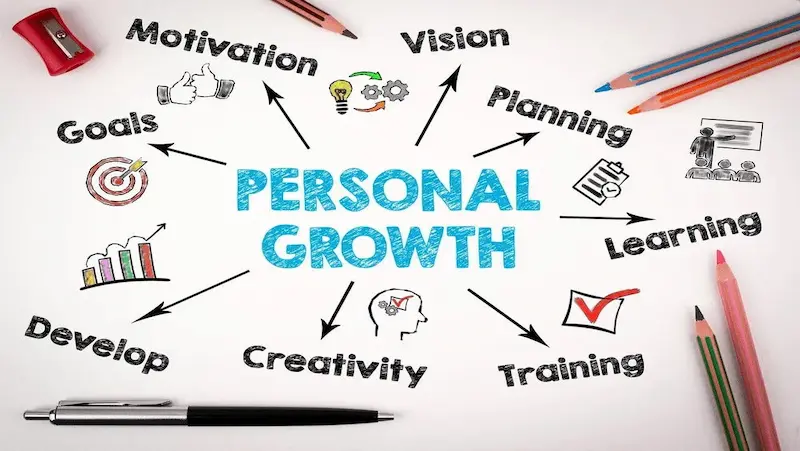
Embracing Personal Growth
In the journey of life, one constant remains change. And with change comes the opportunity for personal growth. This transformation is not just a fancy buzzword; it’s a profound process that brings numerous benefits to our lives. Let’s explore some of these remarkable advantages:
- 1. Improved Self-Awareness: Personal growth shines a light on who we truly are. It’s like a mirror that reflects our strengths, weaknesses, and everything in between. Through self-reflection and self-discovery, we gain a deeper understanding of ourselves. This newfound awareness allows us to make better choices, improve relationships, and steer our lives in the direction we desire.
- 2. Enhanced Confidence: As we learn, evolve, and achieve our goals, our confidence soars. Personal growth isn’t just about external accomplishments; it’s about the internal confidence that comes from pushing our boundaries and realizing our potential. With each hurdle we overcome, our belief in ourselves grows stronger.
- 3. Greater Life Satisfaction: Imagine waking up every morning with a sense of purpose, passion, and fulfillment. Personal growth paves the way for this reality. When we continuously strive to become the best version of ourselves, we find greater joy and satisfaction in our daily lives. The pursuit of personal growth is, in itself, a fulfilling journey.
Personal Development and Success
- 1. Professional Growth: Personal growth is not confined to our personal lives; it has a profound impact on our professional endeavors as well. When we actively seek personal development, we acquire valuable skills like time management, adaptability, and resilience. These skills are the building blocks of professional success. They help us excel in our careers, climb the corporate ladder, or even start our own ventures.
- 2. Personal Fulfillment: Success isn’t solely about financial achievements or career growth milestones. It’s about finding meaning and fulfillment in what we do. Personal growth empowers us to align our actions with our values and passions. When we live a life that resonates with our inner selves, we experience a profound sense of personal fulfillment that goes beyond any material gain.
The Components of Personal Development
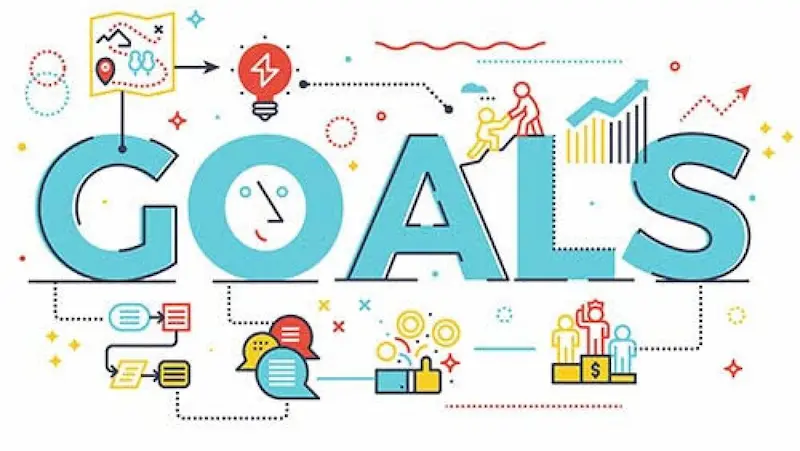
Self-Reflection
Self-reflection is like the mirror of our inner world, allowing us to gain valuable insights into our thoughts, behaviors, and aspirations. It’s a crucial step in personal growth and development.
- 1. Self-Assessment: Think of self-assessment as your own personal performance review. Take some time to ask yourself questions like: What am I good at? What do I need to improve? What brings me joy? What drains my energy? This self-examination lays the foundation for positive change.
- 2. Identifying Strengths and Weaknesses: Knowing your strengths can help you leverage them to your advantage. Similarly, recognizing your weaknesses isn’t a sign of failure; it’s a chance to grow. Embrace your strengths and work on your weaknesses to become a more well-rounded individual.
Goal Setting
Goals are the roadmap to your dreams, and setting them effectively can make all the difference in your journey to success.
- 1. Setting Clear Objectives: Before you embark on any journey, you need a destination. Clearly define what you want to achieve. Whether it’s in your career planning, personal life, or hobbies, having a clear objective provides direction and motivation.
- 2. SMART Goals: SMART goals are Specific, Measurable, Achievable, Relevant, and Time-bound. They add structure to your aspirations. Instead of saying, “I want to get in shape,” set a SMART goal like, “I will jog for 30 minutes, five days a week, to lose 10 pounds in three months.” It’s more concrete and actionable.
Creating a Personal Development Plan
Embarking on a journey of personal development is like setting sail on a voyage of self-discovery. It’s an exciting and transformative experience that can lead to a more fulfilling life. However, without a clear plan in place, it’s easy to get lost at sea. That’s where creating a personal development plan comes in.

The Planning Process
- 1. Setting Priorities: The first step in crafting your personal development plan is to identify your priorities. What areas of your life do you want to improve? Whether it’s your career, relationships, health, or personal skills, knowing your priorities will guide your journey.
- 2. Creating a Roadmap: Once you’ve determined your priorities, it’s time to create a roadmap. Think of this as your treasure map, outlining the steps you need to take to reach your goals. Break your objectives down into manageable tasks and set deadlines to keep yourself accountable.
Long-Term vs. Short-Term Goals
- 1. Balancing Immediate and Future Objectives: While it’s important to focus on long-term growth, don’t neglect short-term goals. They provide the motivation and momentum needed to propel you toward your bigger aspirations. Striking a balance between the two ensures steady progress.
- 2. Tracking Progress: A personal development plan isn’t static; it’s a dynamic tool that evolves with you. Regularly review your goals and assess your progress. Celebrate your achievements, learn from your setbacks, and adjust your plan as necessary to stay on course.
Self-Improvement Techniques
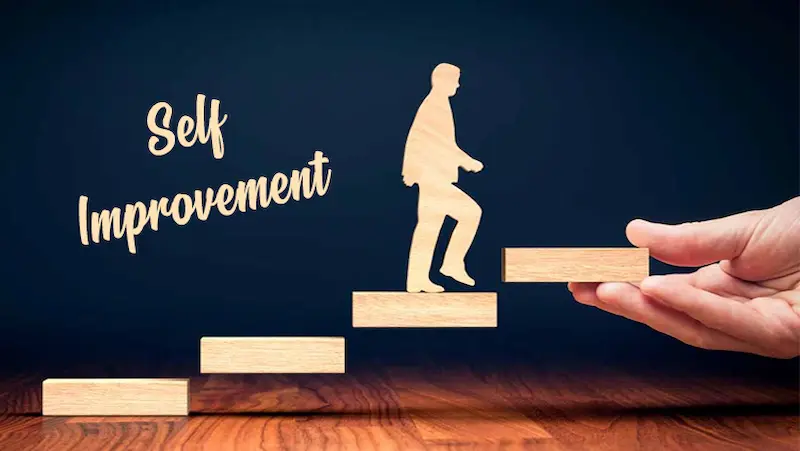
Personal Growth Strategies
- 1. Continuous Learning: The moment you stop learning resources is the moment you stop growing. Embrace the idea that every day is an opportunity to acquire new knowledge, whether it’s through reading, attending workshops, or simply engaging in meaningful conversations. Keep that curiosity alive!
- 2. Skill Development: Identify the skills that resonate with your personal and professional goals. Take small, consistent steps to hone these skills. Remember, Rome wasn’t built in a day, and neither are your skills. Patience and perseverance are your best buddies here.
Emotional Intelligence
- 1. Managing Emotions: We all have our emotional ups and downs, but the learning experience to manage them effectively is a game-changer. Practice self-awareness by recognizing your emotions, and then, instead of reacting impulsively, take a deep breath and respond thoughtfully. It’s like having a remote control for your emotions
- 2. Empathy and Relationships: Building meaningful relationships is at the core of human experience. Cultivate empathy – the ability to understand and share the feelings of others. It’s the glue that holds relationships together. Listen actively, show genuine interest, and offer support when needed. Your connections will flourish.
Physical Well-being
- 1. Health and Fitness: Your body is your temple, so treat it with love and care. Regular exercise not only boosts your physical health but also does wonders for your mental well-being. Find an activity you enjoy, and make it a habit. Your future self will thank you.
- 2. Nutrition and Lifestyle: What you put into your body matters. Opt for a balanced diet filled with fresh fruits, veggies, and whole grains. Keep an eye on your daily habits, too. A good night’s sleep and stress management can work wonders for your overall health.
Personal Development Resources
Personal development is a lifelong journey, and to embark on it successfully, you’ll need the right resources at your disposal. Here are three valuable avenues for your personal growth:

Books and Literature
Books have the power to transport us to different worlds, but they can also be powerful tools for self-improvement. Whether you’re looking for inspiration, guidance, or practical strategies, there’s a book out there for you. Some timeless classics like “The Power of Habit” by Charles Duhigg or “Mindset” by Carol S. Dweck can reshape your perspective and help you grow.
Online Courses and Workshops
The internet has opened up a wealth of knowledge like never before. Online courses and workshops allow you to learn from experts in various fields, all from the comfort of your home. Platforms like Coursera, Udemy, and edX offer courses on everything from leadership skills to mindfulness meditation. Investing in these courses can lead to personal and professional growth.
Coaching and Mentoring
Sometimes, the most valuable guidance comes from a mentor or coach. These individuals offer personalized support and guidance tailored to your unique needs and goals. Whether it’s a career coach helping you navigate your professional journey or a life coach aiding in your personal development, having a mentor can accelerate your growth.
Overcoming Common Challenges
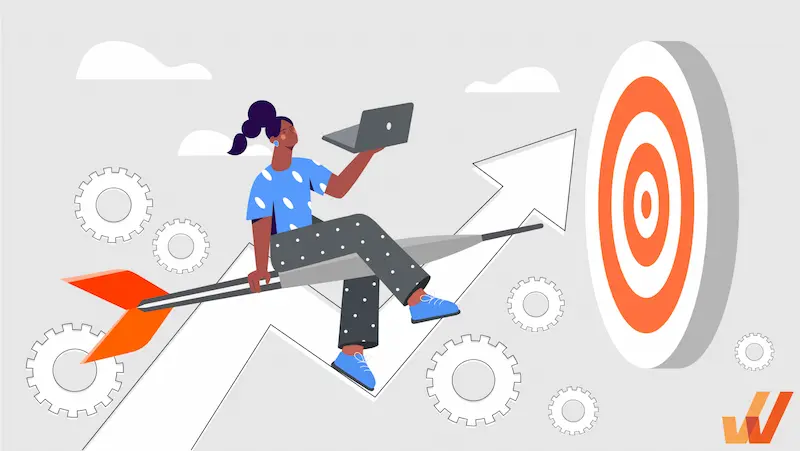
Procrastination
Procrastination. It’s that sneaky habit that creeps up on us when we least expect it. We’ve all been there, promising ourselves we’ll start that important project tomorrow or put off that daunting task until later. But guess what? Tomorrow turns into next week, and later turns into never. So how do we conquer this procrastination monster?
1. Break It Down: One of the best ways to tackle procrastination is to break your tasks into smaller, more manageable chunks. That way, you won’t feel overwhelmed and taking that first step becomes less intimidating.
2. Set Deadlines: Create specific deadlines for each task, and stick to them as if they were etched in stone. Deadlines add a sense of urgency, making it harder to procrastinate.
3. Find Your Focus: Identify your most productive times of the day and schedule your most important work during those periods. Minimize distractions by turning off notifications and finding a quiet place to work.
4. Hold Yourself Accountable: Share your goals with a friend or family member who can help keep you on track. Knowing someone is watching your progress can be a powerful motivator.
5. Reward Yourself: Don’t forget to celebrate your small victories. Reward yourself for completing tasks on time, and use positive reinforcement to build better habits.
Self-Doubt and Imposter Syndrome
Self-doubt and imposter syndrome are like unwelcome guests at a party – they show up uninvited and can spoil all the fun. These feelings can make you question your abilities and achievements, even when you’re entirely capable. Here’s how to kick them to the curb:
1. Recognize It: The first step to overcoming self-doubt and imposter syndrome is to acknowledge that you’re experiencing these feelings. Remember that you’re not alone – many successful people have grappled with them.
2. Own Your Achievements: Make a list of your accomplishments and talents. Remind yourself of your skills and the hard work you’ve put in to get where you are today.
3. Talk About It: Share your feelings with a trusted friend or mentor. Sometimes, just talking about your doubts can help you gain perspective and receive much-needed encouragement.
4. Embrace Failure: Understand that making mistakes and facing challenges is a natural part of growth. Don’t be too hard on yourself when things don’t go as planned; use them as opportunities to learn and improve.
5. Challenge Negative Thoughts: When self-doubt creeps in, challenge those negative thoughts. Ask yourself if they’re based on facts or simply fear. Often, you’ll find they’re unfounded.
Conclusion
In the ever-evolving tapestry of life, our journey of personal development is the thread that weaves our experiences, lessons, and growth into a rich and meaningful existence. It’s a journey without a final destination, where the path itself becomes our purpose. As we embrace the continuous pursuit of self-improvement, we discover that the true essence of life lies not in reaching a static state of perfection, but in the dynamic process of becoming the best version of ourselves. So, let us keep walking this winding road with an open heart and a curious mind, for it is in the journey itself that we find the beauty of our humanity.
To get your hands on more such articles, educational content, and free resources on coding for kids, robotics courses, game development, etc., check out the BrightCHAMPS Blog Page now!
Frequently Asked Questions
A1. Personal development is the process of improving yourself mentally, emotionally, and socially. It’s essential because it helps you grow, achieve your goals, and lead a more fulfilling life.
A2. Start by setting clear goals, self-reflecting, and seeking opportunities for learning and growth. Small steps and consistency are key.
A3. Begin with reading self-help books, practicing mindfulness, setting SMART goals, and building a support network through networking or joining groups.
A4. Goal setting gives you direction and motivation. It helps you measure progress and stay focused on what matters most in your personal growth journey.
A5. Common challenges include self-doubt, lack of motivation, and setbacks. It’s important to stay persistent, adapt to obstacles, and seek support when needed.

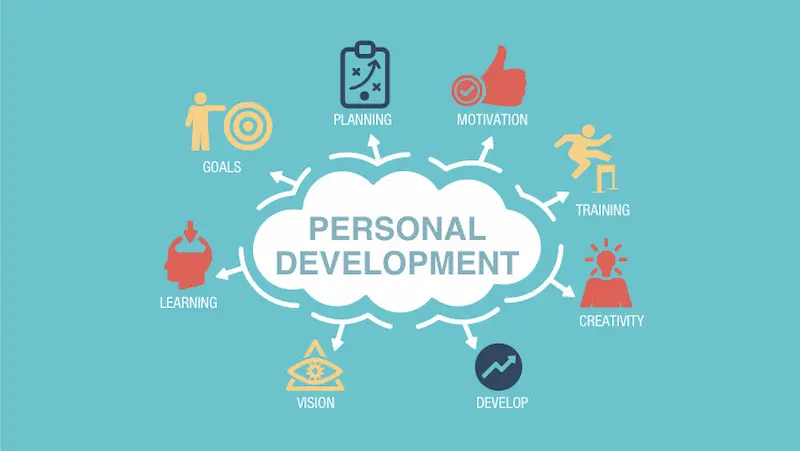
 We are an army of educators and passionate learners from BrightChamps family, committed to providing free learning resources to kids, parents & students.
We are an army of educators and passionate learners from BrightChamps family, committed to providing free learning resources to kids, parents & students.








